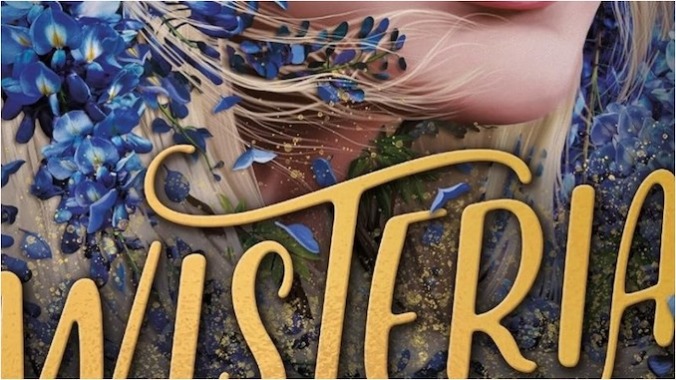Wisteria Brings Adalyn Grace’s Belladonna Trilogy to a Close By Shifting the Series’ Focus

Though Wisteria is the final installment in author Adalyn Grace’s Belladonna trilogy, it might surprise some readers to find out that its story is not about original heroine Signa Farrow. Though the series may have begun as the Gothic tale of a girl who could see (and fell in love with) Death, it ultimately blended many genres into one story, mixing magical elements with a murder mystery plot to create something refreshingly different in the YA fantasy space. But as the story has continued, Grace’s trilogy has grown in scope and scale to encompass a much larger story of magic the supernatural, and a family whose history and future both seem inescapably entwined with them both.
Though its story follows the events of Foxglove, which both introduces Death’s brother Fate and serves as a bridge from Signa’s story to Blythe’s, Wisteria still manages to feel like a cohesive and self-contained story in its own right. However, the series’ final volume, has several big changes, most notably that individual POV chapters have been abandoned in favor of a more straightforward third-person narrative. Though Signa still appears, Blythe is Wisteria’s main character, and it’s her desires and feelings that drive the bulk of the story story. Fans of Belladonna who initially fell in love with Grace’s series because of its focus on the relationship between Signa and Death may find this final installment frustrating, simply because the two appear only sporadically at best throughout this story.
True, the pair still play thematically significant roles, and Signa’s friendship with Blythe is a key element of her journey throughout this novel. But the Signa and Death romance definitely takes a back seat to everything else that’s going on in this book, and outside of a few glimpses of sweet, small moments here and there, there’s not much going on between them. On the plus side, at least they seem very happy with one another. (Though if you were hoping to see more of Signa learning what it means to be a reaper, you’ll be disappointed there too.) But Wisteria is, without doubt, Blythe’s book, so go into reading it with that in mind.
-

-

-

-

-

-

-

-

-

-

-

-

-

-

-

-

-

-

-

-

-

-

-

-

-

-

-

-

-

-

-

-

-

-

-

-

-

-

-

-








































